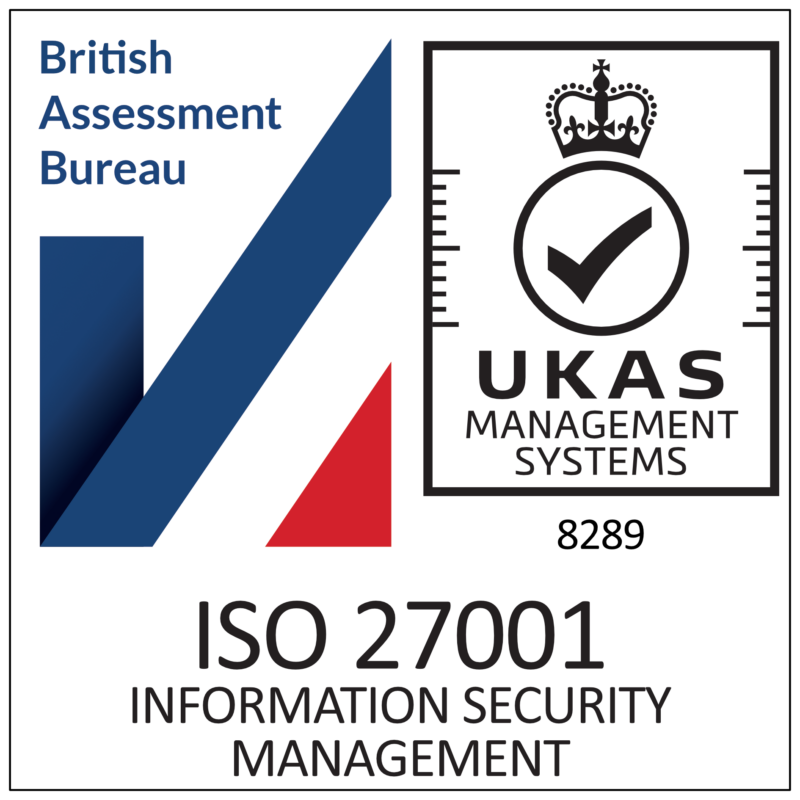Top Tips for New Heads of 6th Form/ Post-16 Leaders
The head of 6th Form role is extremely rewarding; however, it can also be very demanding at times. In this blog, Alps Educational Consultant, John Roe uses his experience to share practical tips that will hopefully have a big impact on your sixth form and save you time and energy as you begin this role.
Starting a new role as a head of 6th form can sometimes feel daunting. Some teachers may have had pastoral experience previously but for many this may be their first experience of working in a pastoral leadership role. Even for teachers who have held head of year roles or worked in pastoral teams previously, the role of head of 6th form can throw up some unique challenges. The head of 6th form role is often perceived to be a very specialist within schools and therefore teachers new to the role can often find it more difficult to get the guidance and training they need. The autumn term is particularly hectic with year 12 students needing careful monitoring, guidance, and support to make an effective transition from key stage 4 (KS4), year 13 students making big decisions on post-18 options and the often-monumental task of processing hundreds of UCAS applications by the January deadline. All this alongside the need to monitor students’ attendance and progress and to intervene when things aren’t going to plan.
When I started my role as a director of 6th form, nothing prepared me for the sheer volume of emails I received daily from staff, students, parents, universities and other organisations and it can often feel when you start the role that your time is being pulled in all different directions. Lots of your time will be spent dealing with both academic and wellbeing concerns, as well as advising students and parents on different pathways and options. With over 50,000 courses being offered each year by UK universities, this alone can feel an overwhelming task. When you start this role and even when you have been in post for many years, it is very easy to feel like you are constantly ‘fighting fires’ and to focus on the day-to-day issues that can hijack even the best made plans. The aim of this blog is to give you some practical tips that will hopefully have a big impact on your sixth form and save you time and energy as you begin this demanding but incredibly rewarding role.
- Know your students.
When picking up a new cohort of students for the first time, it is invaluable to find out as much as possible about them preferably before they even start sixth form. Handover meetings with their previous head of year or KS4 team can be incredibly valuable and save you a lot of time in the future. Being aware of students whose attendance or behaviour has been a concern previously, students who engage with external agencies, wellbeing concerns, previous strategies that have been used successfully to motivate individual students or groups of students, can be extremely valuable and will allow you to be proactive, rather than reactive in the strategies you put in place to help them make a smooth transition into sixth form. The Alps Connect platform can be incredibly useful in helping you identify students and groups of students who may have underachieved previously. Analysing results from KS4 using the Student Analysis Overview feature in Connect is quick and easy and will show you students who performed below or well below their target grade for subjects or even multiple subjects. Using this, as you review student’s current post-16 options, will help you can gain a better understanding of whether these are appropriate or need reviewing and whether additional monitoring or mentoring may be needed.
Building your own Alps report, using the Strategic Analysis tool will allow you to quickly analyse past results by gender, ethnicity, high/middle/lower ability groupings and disadvantaged groups which will support both your self-evaluation and improvement planning.
- Communicate your vision, values, and ethos.
Effective schools will have a clear vision, values and ethos and it is important that these are maintained and built upon in sixth form. Sixth formers are key role models for younger students and involving students alongside staff in reviewing and refining these via organisations such as school councils or pupil parliaments will help to develop a sense of ownership and strengthen relationships. Communicating this vision and your expectations of students, staff and students is equally important, and assemblies, tutor time and study area displays all provide opportunities for you to do this. It is vital that everyone feels that their views are valued, and this will help you, as well as sixth form tutors and teachers, to develop stronger relationships with students. Holding an information evening for parents and guardians early in the autumn term, where they have an opportunity to meet the sixth form team is also good for building positive relationships, as well as providing an opportunity to discuss the role they can play in supporting their children during their time at sixth form.
- Develop an effective tracking and monitoring system.
Effective tracking and monitoring of students’ progress at both subject and a whole school level along with timely and appropriate interventions is essential for a sixth form to be successful. It is also essential to ensure that staff, students, and parents understand the concept of Alps Minimum Expected Grades (MEGs) and how these are calculated. Tutorial time and assemblies provide a good opportunity for explaining this to students and it is important that all students know what their MEGs or personalised targets based on these are. I found that allocating assembly/tutorial time to this prevented a lot of individual queries from students and parents and saved me valuable time. All staff can monitor student progress quickly and easily against the MEGs using Alps Connect, and heads of 6th Form can utilise the platform to identify students underachieving in multiple subjects.
Addressing underachievement
It is critical that heads of 6th form, SLT and heads of department develop a clear joined up strategy for addressing underachievement. For example, when working with departments as director of 6th form, I would expect to be informed if a student was underachieving and if this was only in one subject. The department would take the lead in informing parents and putting in place appropriate intervention strategies, keeping me informed of the success of these. If underachievement was in multiple subjects the sixth form team would take over, communicating with students and parents and working with individual departments and form tutors to develop appropriate strategies. The head of 6th form has limited time and it is essential everyone works together to support students who are underachieving. To support departments, I found it useful to develop standard cause for concern letters that they could adapt and personalise. This improved communication and led to more consistent interventions taking place.
Heads of 6th form are the key link between departments, students, parents and SLT, therefore building strong relationships with all these stakeholders is crucial in this role. Using Alps Connect allows you to identify subjects where students are underperforming and to support heads of department and subject teachers in addressing this. It is important that addressing underachievement is not the sole role of a head of 6th form or the sixth form team. That is not a sustainable model of practice and that’s why building strong relationships and working closely with all stakeholders is essential if your sixth form is to be successful.
- Make effective use of tutorial time and assemblies.
The form tutor plays a key role in supporting sixth formers. They will often be the only teachers who see a student every day and the relationship they form with students is crucial. Providing opportunities for your tutors to have regular discussions with students both in groups or one to one, to get to know them properly and to understand their views, opinions and concerns can be incredibly valuable. Form tutors can also play a key role in tracking students’ progress and it is worth investing the time to train tutors to use the Alps Connect platform. When loading up student data to Connect, always remember to upload students’ form groups. This will allow tutors and the sixth form team to monitor progress easily and for you to compare the progress each form group is making collectively during their time in sixth form. Some sixth forms I have encountered have even utilised this in their reward system, rewarding form groups who make the most collective progress during a term or half term.
Tutorial time is also important in developing the skills, personal qualities and knowledge students need to thrive at sixth form. To make an effective transition from KS4, students will need to become strong independent learners and a successful tutorial programme will give them the opportunity and support to develop skills such as organisation, time-management etc. It should also provide them with the knowledge needed to make informed career choices and support their health and wellbeing.
Putting together an effective programme can be time-consuming but there are lots of great resources out there to support you. ‘The A-level Mindset: 40 activities for transforming student commitment, motivation and productivity’ by Steve Oakes and Martin Griffin is a must read for new heads of 6th form. It is full of great ideas and practical activities that you can incorporate directly into your tutorial programme. Utilising the VESPA model introduced in the book with activities designed to develop, students’ vision, effort, systems, practice, and attitude can give your tutorial or mentoring programmes a real focus. Many universities have also developed resources to support sixth form tutorial programmes and it’s worth contacting the school liaison teams to see what resources and support are available. Most universities will be keen to support you and will be happy to arrange guest speaker sessions, taster lectures, university visits to enhance your curriculum. In addition to sessions relating to UCAS, many universities now offer sessions to support students with revision skills, exam technique, research skills and wellbeing.
Assemblies can be used to reinforce aspects of your tutorial programme. For example, I would often use these to stress the importance of utilising study periods and preparing for lessons. To me the big difference between KS4 and sixth form is the amount of independent work that is needed between lessons to be successful. Many parents and former students will also be keen to support you with assemblies and guest speaker sessions. Having talks from former students can be incredibly powerful and very effective at raising aspirations and motivating students.
- Make time for yourself and look after your own wellbeing.
The head of 6th Form role is extremely rewarding; however, it can also be very demanding at times and exhausting. It is therefore invaluable to build a strong pastoral team who support each other during these times. It can be easy to dwell on situations that happen while you carry out the role and you may often be dealing with information and situations that are upsetting. It is therefore necessary that you make time to relax, recharge and to do activities that you enjoy. Research from Birkbeck, University of London, has found that high quality ‘me time’ not only improves your psychological wellbeing, but it can also make you a more engaged employee and increase your productivity. To support students’ effectively with their academic programme and their wellbeing, it is vital you look after your wellbeing and come to school having rested and recharged. Collaboration and sharing resources between schools can often reduce your workload and through networking you can develop and share good practice, as well building an additional support network.
I hope you find these tips helpful and good luck in your new role.
 About John Roe, Alps Educational Consultant.
About John Roe, Alps Educational Consultant.
John has worked in education for 22 years as a science teacher, head of department/faculty and pastoral lead. Prior to joining Alps, John was Director of Radyr Sixth Form in Cardiff for 10 years where he gained extensive experience of using Alps to raise student achievement. John has also worked as a Post-16 Development Officer for Central South Consortium supporting schools to raise standards across five local authorities in South Wales.
Need more information?
If you would like any further information, please contact one of our expert advisers.


